Campus Sustainability News
News on campus sustainability initiatives, emerging programs, rankings, awards, student initiatives, green teams, and more from across the Cornell University campus.
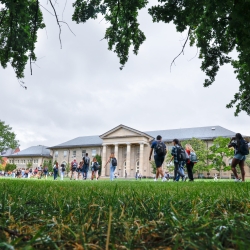
A new mini-grants program funded by the Campus Sustainability Office and Energy & Sustainability Department provided $1,000-$2,000 funds for three campus teams to implement energy-saving measures in lighting, lab equipment, and more.
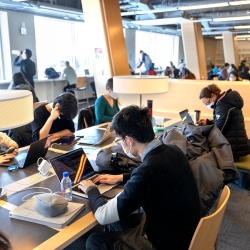
Renovations to Statler Hall as part of the Energy Conservation Initiative have yielded energy and carbon savings on campus.
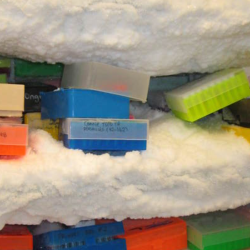
Cornell laboratories reduced energy use by targeting freezers in the international Freezer Challenge, which encourages friendly competition between research-intensive laboratories that rely on cold storage.
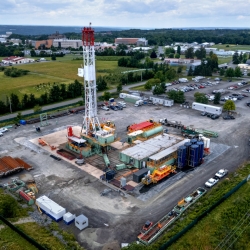
Visit the borehole site on Tuesdays, from noon to 1pm, when staff and faculty will be available to learn more about Earth Source Heat.
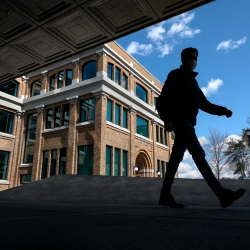
Cornell's annual Energy Smackdown and Winter Setback programs saved the campus energy and money in December of 2021, and encouraged campus community members to understand and engage in energy-reducing behaviors that reduce the use of fossil fuels.
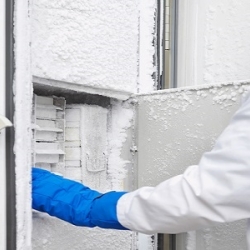
Calling all labs with cold storage! Join the annual Freezer Challenge at Cornell University where labs perform key management practices to achieve greater energy efficiency, improve sample accessibility, reduce risk, save costs, and boost freezer reliability. Register by April 30th
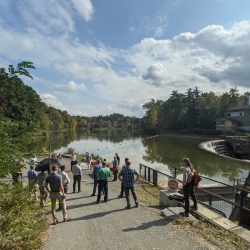
Cornell’s oldest renewable energy system – the campus hydroelectric plant located on Beebe Lake - has been approved for another forty years of clean energy production after a successful five year recertification process.

Energy Smackdown - the annual energy saving competition- begins December 1st. This year, students will face off against faculty & staff and the Campus Sustainability Office has launched a new Campus Energy Reduction Grant of up to $1,000.
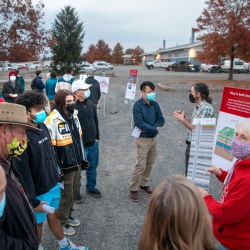
The first important step is drilling this exploration well to confirm the technical viability and ensure the safe operation of the system.
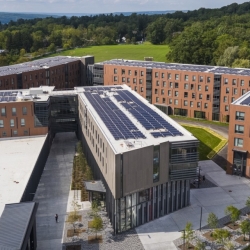
Students living in the newly opened residence buildings – Toni Morrison Hall and Ganędagǫ: Hall – know of the buildings’ rooftop solar panels. But if the windows and walls could talk, they would be fluent in the language of sustainability.
